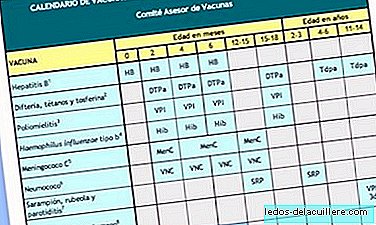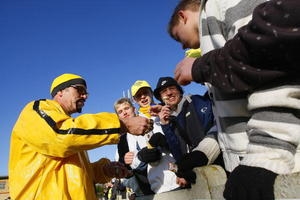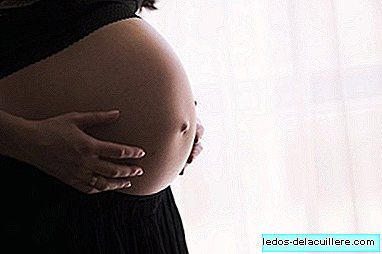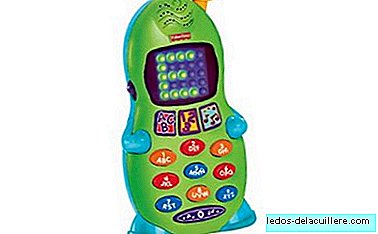
With the arrival of the new year, the Vaccine Advisory Committee of the Spanish Association of Pediatrics (AEP) updates its vaccination recommendations, in childhood and adolescence, with the publication of its vaccination schedule for 2012, with some changes from last year that we comment below.
These recommendations take into account the available evidence on the effectiveness and efficiency of vaccines, as well as the epidemiology of immunopreventable diseases in our country. They are aimed at pediatricians, family doctors, nurses, family members of children and, in general, to all those interested in updated information on vaccination in the pediatric age.
The Vaccine Advisory Committee (CAV) reaffirms its goal of promoting the achievement of a unique vaccination schedule, purpose of which we have spoken several times in the blog.
If there were a unique calendar, the principle of equity in the prevention of the disease and in the health offer to the population would be maintained and inequalities would be eliminated in this regard, avoiding that for the same vaccine a family has to pay in some communities and in others it is subsidized.

Changes in the 2012 vaccination calendar
Based on the latest epidemiological changes, the main novelties in the recommendations for 2012, regarding those issued by the Vaccine Advisory Committee a year ago, are the following:
The first doses of triple viral vaccines (TV) and chicken pox are preferably recommended at 12 months, although it is considered acceptable between 12 and 15 months.
Second doses of TV and chickenpox vaccines are recommended between two and three years, preferably for two years.
The new recommended range of administration of booster doses of meningococcal C and pneumococcal vaccines is 12 to 15 months.
If epidemiological circumstances require it, a booster dose against meningococcus C is recommended for those children who have received a primary series in the first year of life without reinforcement after 12 months of age.
The combined low antigen load vaccine against tetanus, diphtheria, and Tdpa whooping cough is recommended at four-six years, always accompanied by another dose of Tdpa at 11-14 years (in 2011 at 14-16 years) .
Recall that this vaccination schedule, designed for childhood and adolescence, indicates the ages at which the vaccines considered by the CAV-AEP have to be administered with a systematic, recommended profile and those for risk situations. In addition, it also includes calendars for accelerated vaccination in different age groups.
Remember that, before administering them to our children, it is convenient that we inform ourselves about vaccines, especially of the possible adverse effects and how to act before them.
The CAV reminds us that you should consult the 2012 vaccination schedule for each autonomous community and contact the local health authorities (surveillance system for adverse reactions of vaccines) to declare the relevant clinical events that may occur after the administration of a vaccine.












